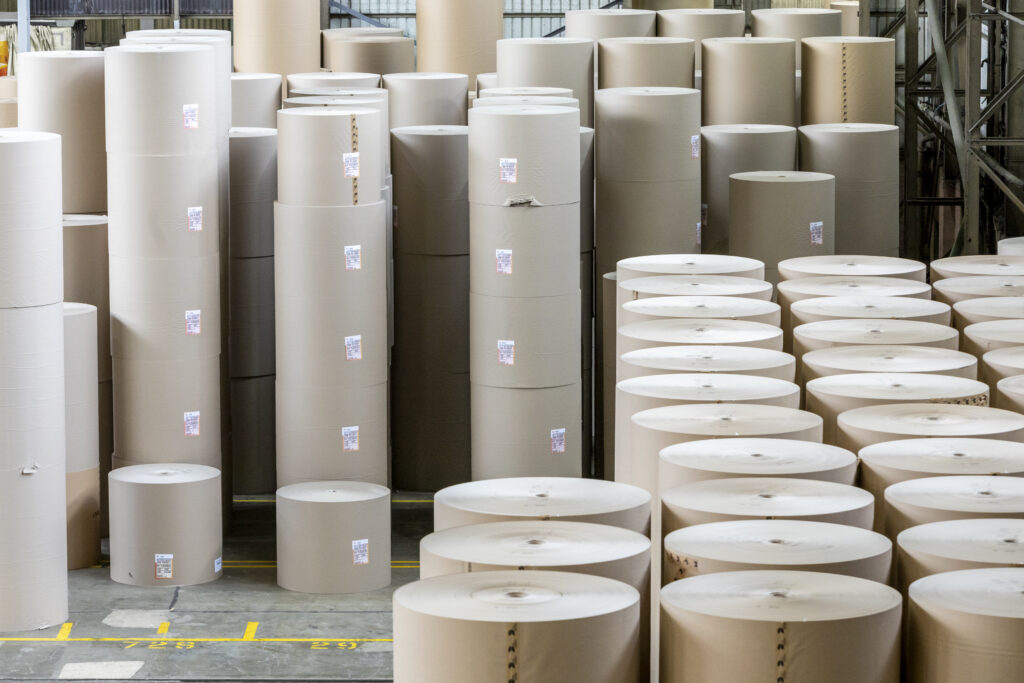With more publicity about the dangers of identity fraud, the popularity of paper shredders in the home has increased with more likely to be sold for this Christmas.
” The main problem is that shredded paper doesn't usually survive the MRF “
– Steve Read, Project Integra
Several local authorities contacted by letsrecycle.com indicated that they either did not want to received any shredded material or would prefer the minimum possible while others suggested the material might be better composted.
In the south of England, Hampshire has operated an anti-shredded paper policy at the Project Integra materials recycling facilities for several years for material collected at the kerbside.
Steve Read, executive officer for Project Integra said: “The main problem is that shredded paper doesn't usually survive the MRF.”
Mr Read explained that shredded paper can fall off the conveyor belt and get wrapped around the mechanism. “If it manages to reach the sorting stage the material will leave the process at this point as it is only designed to identify pieces of paper which are A5 or larger so that smaller pieces of paper will fall through.” Mr Read added that shredded paper is “easily ignitable”.
Contaminant
Richard Cutts, director of Community Waste which operates the Milton Keynes MRF, said he viewed shredded paper as a 'c;ontaminant' to MRFs and had noticed a definite increase in the amount of shredded paper in the mix “particularly throughout 2006”.
Mr Cutts said that the material is coming primarily in collections from “wealthy middle-class areas where they can firstly afford shredders and with more assets to their name, are inevitably more cautious about identity fraud.”
However the material which does end up in the paper mills is also causing problems as Craig Robinson, senior RCP purchasing manager at UK’s largest paper recycler, UPM Shotton said. “We have to stop machines more often to clean out the conveyors as the paper gets stuck under the conveyors so creating operational problems”
Andrew Perkins, recycling operations manager for Aylesford Newsprint, noted that shredding also affects the end quality of paper: “Shredding reduces the length of the fibres in the paper and the aim for high quality paper is to get as many fibres as possible.”
Additionally, he said, shredded confidential documents, which generally find their way into mills handling office waste and card, tend to have lots of printer toner or photocopier toner on them which can be more difficult to clean and so lessen quality.
Newspapers
UPM Shotton is advising local authorities that: “Current volumes of shredded paper are ok but we wouldn't encourage people to shred anything that doesn't need shredding such as magazines and newspapers.”
” We wouldn't encourage people to shred anything that doesn't need shredding such as magazines and newspapers “
– Craig Robinson, UPM Shotton
Mr Perkins at Aylesford Newsprint says: “We are happy to take shredded paper from the domestic stream which has been shredded for confidentiality – as long as it is a minor proportion of the overall load .”
Collection crews have also reported having problems with shredded paper as Gerald Hannon, customer services advisor for East Devon council explained: “In East Devon our co-mingled boxes are sorted on the kerbside by the collection crew, and shredded paper blows around more, makes it 'harder to separate' and is more “time consuming”.
Both East Devon council and Bolton council told letsrecycle.com that they encouraged residents to recycle “small amounts” of shredded paper.” Project Integra and Community Waste are also encouraging residents to put the shredded paper in with their green waste to be composted.
These messages seem to be having some impact as composters have also reported an increase of shredded paper in their collections.
Peter Mills composting specialist at New Earth Solutions said: “In terms of tonnage its good for us and its good for local authorities as it adds to the landfill diversion. It indicates a change in public behaviour and attitude so we will adapt our facility to receive it.”







Subscribe for free